As the old saying goes, “no hoof, no horse.” It’s true. If you can’t maintain your horse’s feet, you’re going to run into serious systemic health problems. But what if it runs deeper than just externally taking care of their feet? What if I told you that gut health is one of the major contributing factors to poor hoof quality? The gut hoof health connection is real.
Gut health has become a major area of scientific study in the past 15 years for humans and animals. Before that, there was very little, if any, real scientific research being done to explore the impacts of poor gut health and the microbiome was hardly being recognized. Fast forward to modern day: as it turns out, gut health is kind of a big deal… And for horses, this couldn’t be more true. Horses are literally a giant, walking gut. They cannot live a comfortable healthy life without a properly functioning gastro-intestinal system.
What’s the Gut Hoof Health Connection?
Simply put, if the gut isn’t well, the hoof will suffer. It never ceases to amaze me how everything is connected to gut health. Countless times, I’ve seen diseases that you wouldn’t even consider related to the gut transformed when we focus on supporting the GI system. And the hoof is no exception. It is well-established that horses experiencing hoof growth issues are often suffering from underlying conditions including nutritional malabsorption due to inflammatory bowel disease, gastric ulcers, disturbance of the gut microbiome, metabolic disease and poor nutrition. It is not uncommon for horses to suffer from more than one of these issues at the same time. And, if this is true, even the best farrier will only have so much to work with in trying to help your horse recover.
Even if you think everything seems fine, if your horse suffers from repeated bacterial or fungal diseases of the hoof, it’s time to pay attention. Thrush and other foot infections are a sign of loss of hoof integrity and lack of blood flow. Strong, healthy hooves do not succumb to pathogens the way soft/porous/weak/unoxygenated hooves do. Simply treating infections with topical solutions will not address the underlying problem. Lack of blood flow plays a part in the promotion of anaerobic bacteria (e.g. thrush, white line disease, DCS). These bacteria thrive in poorly oxygenated tissue. The less oxygen that reaches the hoof via blood flow, the higher the risk of infection. Poor circulation also inhibits hoof growth.
When I see a horse who has trouble with her feet, I always explore her overall health. Often, there are tell-tale signs as to why a horse is unable to grow a good hoof. So, let’s run through the checklist I use to determine what might need addressing.
1. Diet
Number one here! Diet can either help or hinder the gut. High starch diets are proven to be a major cause of ulcer development. Highly processed and heated treated feed is another contributing factor. Pasture and herb access is often overlooked in equine gut health.
2. Poop!
Poop is the daily barometer for checking your horse’s gut health.
- How often does your horse poop?
- Is the poop really dry and hard to pass, runny and messy, or well-formed balls?
- What does it smell like? Does it smell foul, fermented, sweet, or other?
- Has your horse ever suffered from impaction colic? Or irritable bowel disease/colitis?
The only healthy answers here are that your horse has moist, well-formed poo balls and poops regularly (6-12 times daily). Anything else means it’s time to help your horse!
3. Pain
Is your horse uncomfortable anywhere? Particularly in the girth or belly area? If your horse gets upset when you tighten the girth, or touch their belly, it’s a sign you may need to investigate their gut. Being “girthy” is a hallmark warning sign of ulcers or other GI disturbance.
Recurrent lameness could also be a complication of sore feet and you’ll need to rule this out with your vet and your farrier. Sore feet are often a result of an underlying issue with hoof integrity, circulation, internal inflammation, or all three. These can all stem from an unhealthy gut.
4. Stress and Lifestyle
Stress is a well-known cause of inflammation and this applies heavily to the gut. (1) (2) (3) (4)
Do you have a performance horse? 80-90% of performance horses struggle with their gut health. In my opinion, they all need extra preventative support from the diet and supplementation to keep them from developing ulcers and damage to the GI mucosal lining. I always assess a horse’s stress level when considering how much support they might need to recover from gut disease. Lack of movement, limited social interactions, boredom, fear, and physical discomfort can all be sources of stress for your horse. Short term, they might not be life-threatening but chronic stress will damage your horse’s gut.
5. Movement
Movement is not only a must for overall equine stress management but it also helps strengthen the hoof. Expansion and contraction of the hoof during movement increases blood flow and hoof integrity. (5) Without this action, the foot can become deprived of oxygen, discouraging proper hoof growth and encouraging anaerobic pathogens to set up shop.
Movement is also implicated in ulcer and colic prevention. For more information on equine gastric ulcers, check out my ulcer blog.
6. NSAID, Antibiotic, and Worming History
Every round of drugs, including non-steroidal anti-inflammatories, antibiotics, and dewormers, has an effect on the gut. NSAIDs, like the drug Bute (phenylbutazone), damage the mucosal lining of the gut and are connected to development of ulcers in horses. (6) (7) Antibiotics and pain medication may be necessary in severe situations but they can also cause great damage. (8) (9) Dewormers may also affect the microbiome. (10) If you want to improve your horse’s gut and hoof health, minimizing the use of these drugs is advised. And, if you need to use them, you need to work on rebalancing the gut during and after the medication. And consider submitting regular fecal samples to test for parasite overload instead of constantly deworming your horse.
7. Glyphosate – The Elephant in the Room
Glyphosate is a commercial herbicide, more popularly known as Roundup. It has become an exceedingly worrisome issue in the human food world as well as the animal food world. Glyphosate is sprayed onto genetically modified (GMO) crops which are designed to withstand the chemicals while it kills weeds that inhibit crop growth. It has a patent as an antibiotic and a chelating agent (causing nutritional mineral deficiencies) and is a known endocrine disrupter. Additionally, it is documented that is causes stomach irritation in farm animals AND has been found in the blood, urine, and keratin of the hooves of horses who are fed a glyphosate-contaminated diet. Dr. Anthony Samsel of the California Environmental Protection Agency has extensively researched the mechanism of how glyphosate degrades the integrity of the hoof in horses. Dr. Samsel is also known for his research into how glyphosate can create celiac disease, a serious auto-immune disease of the GI tract in humans…. (Note the gut-hoof connection!) (11)
The most heavily sprayed GMO crops include alfalfa, wheat, corn, oats, barley, soy and other legumes, sunflower, canola and, sadly, even flax is being sprayed now too. If you are feeding any of these foods to your horse, I implore you to do your own research on the dangers of glyphosate and other herbicides and pesticides on your horse’s health (and yours!). It is a whole topic in itself with serious health and environmental implications.
8. Underlying Health Issues (Obesity, EMS, Cushing’s, IBS)
Metabolic and digestive diseases are well-documented as a precursor to hoof growth and quality. If your horse suffers from obesity, equine metabolic syndrome (EMS or insulin resistance), Cushing’s disease (PPID), irritable bowel disease (IBS), or cancer, your horse is more likely to suffer from hoof issues. (12) (13) It’s important to know how to prevent these problems and properly address them if they are happening. This is also another subject altogether but do keep in mind that there are proactive things you can do for your horse if they are struggling with their health.
How You Can Help Improve Hoof Health
It’s not all doom and gloom! There are a number of changes you can make to you horse’s diet and daily routine to improve hoof health. So, here are some ways that you can make a big difference for them, not only with their feet, but their overall mental and physical wellness. This applies to horses who aren’t experiencing serious health issues too and can be used to prevent problems well before they start.
1. Do a Diet Analysis
No, Thank You: Things to omit from the diet:
- ANY extruded/processed feed that contains genetically modified (glyphosate-sprayed) food sources. Do not feed these to your horse if your goal is to promote health!
- Processed starch – Starch produces sugar which promotes inflammation and metabolic diseases in horses. Turf it! Instead, choose whole, non-GMO, high fibre foods. Not only will this work as a prebiotic for the gut microbiome, it will also help to balance blood glucose levels. Both are important for healthy hooves! My favorites include non-GMO beet pulp, whole organic grains (oats and barley), and good quality hay.
- GMO alfalfa – If you need to feed alfalfa (which has been shown to help reduce ulcers), feed organic. Find a source you know for sure hasn’t been sprayed with herbicides or pesticides or it will defeat the purpose of feeding it for gut health.
Yes, Please: Things to add to the diet for gut and hoof restoration:
You have to heal the gut in order to heal the hooves. That’s why I always take a close look at what goes into the gut. It can either help or hinder!
- Organic Selenium – Selenium is a mineral that is becoming harder and harder to find in whole foods. The soils have been depleted of this important mineral. Selenium deficiency is indicated for horses with dry, cracked hooves and, I believe, almost every horse needs help with the addition of an organic source of selenium, otherwise known as selenomethionine. Dosage: 1000-2000 mcg daily or higher if deficiency is present – in which case, you’ll need to work with a professional to find the exact dosage.
- B Vitamins – All horses suffering from gut disease will have some level of vitamin B deficiency. The microbiome produces a large amount of the B vitamins that are absorbed into the bloodstream, but when the microbiome is damaged, you will often see vitamin B deficiency. Help them recover by adding the following foods: spirulina (organic and tested for heavy metals), seaweed, and mushrooms such as reishi and shitake. If they are really low on their blood testing, they may need vitamin B injections or supplementation in order to get ahead.
- Vitamin E – Vitamin E is another common deficiency in horses and can be verified though blood analysis by your veterinarian. Vitamin E should be added with selenium to get the full restorative effects if hooves are in bad shape. It’s a good idea to have your horse’s blood tested for vitamin E so you can figure out the best dosage to start with. Often times, horses will need more in the beginning and then the dosage can be reduced as future blood testing is performed and recovery is observed. Foods high in vitamin E include: (all organic) black oil sunflower seeds, green leafy veg, fresh grass, dried cranberry powder, and grapeseed oil. With severe deficiency, an organic, natural-source vitamin E (d-alpha tocopherol) liquid should be added. Do not use powdered or synthetic vitamin E because the bioavailability is low and synthetics are derived from petroleum which no horse should be ingesting for good health.
- Pre & Probiotics – Give your horse prebiotics and probiotics for gut restoration. Awesome prebiotics include non-GMO beet pulp, good hay, organic oats, and barley and larch. When providing probiotics, include as many different strains as humanly possible. Rotate through different probiotics rather than staying on the same ones all the time to help the microbiome become more diverse. And don’t forget, your horse needs to eat soil in order to diversify their microbiome so turn your horses out!
- Mucilage – Mucilage is another form of prebiotic fibre that promotes healthy development of the mucosal layer of the gut (the house for the microbiome). My absolute favorite ways to give mucilage are to soak chia and fenugreek seeds. Fenugreek seeds are also packed with the amino acid lysine, promoting a healthy GI environment and restoring muscle wasting in poorly conditioned horses. Chia seeds are full of the omega 3 fatty acid ALA which is also part of restoring gut and hoof health. Soak chia at 1 part chia to 5 parts water and watch the mucilage unfold! Fenugreek seed powder can be given by mixing 2 tsp of seed powder with ½ cup of boiling water. Let it cool and feed once daily.
- Plant-Based Omega 3 Fats – As I mentioned above, soaked chia is one of my favorite omega 3 fat sources for equines. Fresh busted organic flax is also a great source of antioxidants, fibre, and ALA. Ahiflower and camelina are other good ones to add to the rotation. Don’t just offer one omega 3 fat source all the time. Each food has its own unique set of health benefits. Rotation, rotation, rotation. Be careful with adding oils because they can be rancid and, therefore, toxic. And please do not use fish oil for horses. Not only is the fish oil industry extremely hard on the environment but it is not species-appropriate for horses. Start with small amounts of these foods and slowly work up, especially if your horse suffers from diarrhea or IBS.
- Gut-Supportive Herbs: Soaked fenugreek seed, marshmallow root, slippery elm, dandelion root, and leaf all top the list. Work with an equine herbalist or holistic nutritionist to figure out which herbs are best for your horse, and, in what amounts.
- Hoof-Supportive Herbs (increase blood flow to the hoof): Hawthorne, comfrey, buckwheat, and nettle leaf are good ones. Again, if you’re not familiar with herbs, get a professional to help you with dosing and herb selection.
- L-glutamine –This amino acid promotes regeneration of the gut mucosal lining. It can be found in cabbage (yes, you can feed your horse cabbage!) and you can get it in supplement form as well. Dried cabbage is a popular way that people add l-glutamine to their horses’ diet. You don’t need much. A good handful of dried cabbage is often enough if being used with the other additions mentioned above.
2. Promote Movement
As discussed, earlier, movement will increase blood flow and help with correct hoof growth. Movement is essential to your horse’s recovery in the hoof department. If they are very sore, you will need to start with very light movement and slowly increase as your horse can handle it.
3. Talk with your Farrier
Depending on your horse’s situation, it may be advised to allow the horse to go barefoot to further increase the expansion and contraction (blood flow) of the hoof to help with recovery. This will be a long process and should not be rushed. You may want to get several professional opinions on your horse’s situation.
4. Talk with your Vet About Bloodwork and Underlying Health Conditions
Your vet should be involved in helping your horse recover from hoof disease. You can ask them to run bloodwork to investigate the possibility of nutritional deficiency and gut damage. One of the biggest red flags for gut disease is vitamin B12 deficiency which is something you can do a blood test for. Vitamin E is another nutrient that you can have tested to figure out where your horse is at. A full blood panel should also be done to check liver, kidney, and metabolic function.
5. External Hoof Care
There are some great chemical-free hoof care products out there that can help to topically nourish the hoof and protect from infections while you’re making your way towards long term internal changes. Contact us for some suggestions. Always check with your farrier to ensure the products are right for your horse.
6. Employ Homeopathy for Pain Management
Hoof issues often involve pain and discomfort and traditional pain killers (NSAIDs) can really work against your efforts to restore the gut. Consider homeopathic Arnica, Symphytum, and Ruta. All are found in the Adored Beast Jump for Joynts. Not only will this help provide relief, it can also help encourage movement while the gut heals.
Roman: A Case Study
Roman is a 6 year old anglo-arab gelding. Here’s a quick case study of how Roman’s feet drastically improved after simply addressing his diet and his gut health. He was suffering from poor hoof growth and foot lameness that was significantly affecting his training. These photos were taken 4 months apart. He had a full return to being ridden, reduction in “girthy” behaviour and his coat drastically improved. He continues to improve.

I hope this gives you some useful tips on how to help your horse with hoof-related problems and also how to prevent them from ever happening in the first place. Here’s to hoof health!
References
- Inflammatory Bowel Disease: A Stressed “Gut/Feeling”, Cells, 2019
- Mechanisms of Initiation and Perpetuation of Gut Inflammation by Stress, Alimentary Pharmacology and Therapeutics, 2002
- The Role of Stress in the Development and Clinical Course of Inflammatory Bowel Disease: Epidemiological Evidence, Current Molecular Medicine, 2008
- Alterations in Intestinal Permeability: The Role of ‘Leaky Gut’ in Health and Disease, Journal of Equine Veterinary Science, 2017
- Functional Anatomy of the Horse Foot, University of Missouri, 1999
- The Effect of Phenylbutazone on the Morphology and Prostaglandin Concentrations of the Pyloric Mucosa of the Equine Stomach, Department of Pathology and Equine Drug Testing and Toxicology, College of Veterinary Medicine, Cornell University, 1990
- Orally Administered Phenylbutazone Causes Oxidative Stress in the Equine Gastric Mucosa, Journal of Veterinary Pharmacology and Therapeutics, 2015
- Changes in the equine fecal microbiota associated with the use of systemic antimicrobial drugs, BMC Veterinary Research, 2015
- The cecal and fecal microbes and metabolomes of horses before and after metronidazole administration, Plos One, 2020
- Determining the effects of anthelmintic drugs on the equine intestinal microbiome, Journal of Equine Veterinary Science, 2017
- Glyphosate pathways to modern diseases 2: Celiac sprue and gluten intolerance, Interdisciplinary Toxicology, 2013
- Equine Metabolic Syndrome, Science Direct, 2015
- The Role of Nutritional Therapy in Treatment of Equine Cushing’s syndrome and laminitis, Alternative Medicine Review, 2001


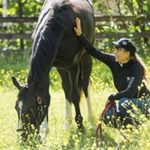
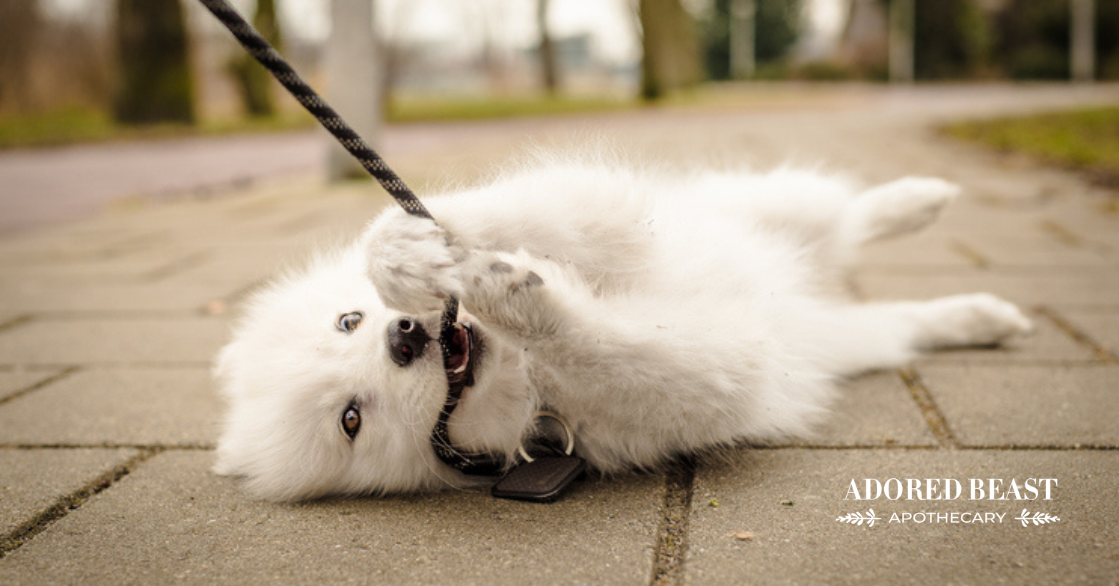
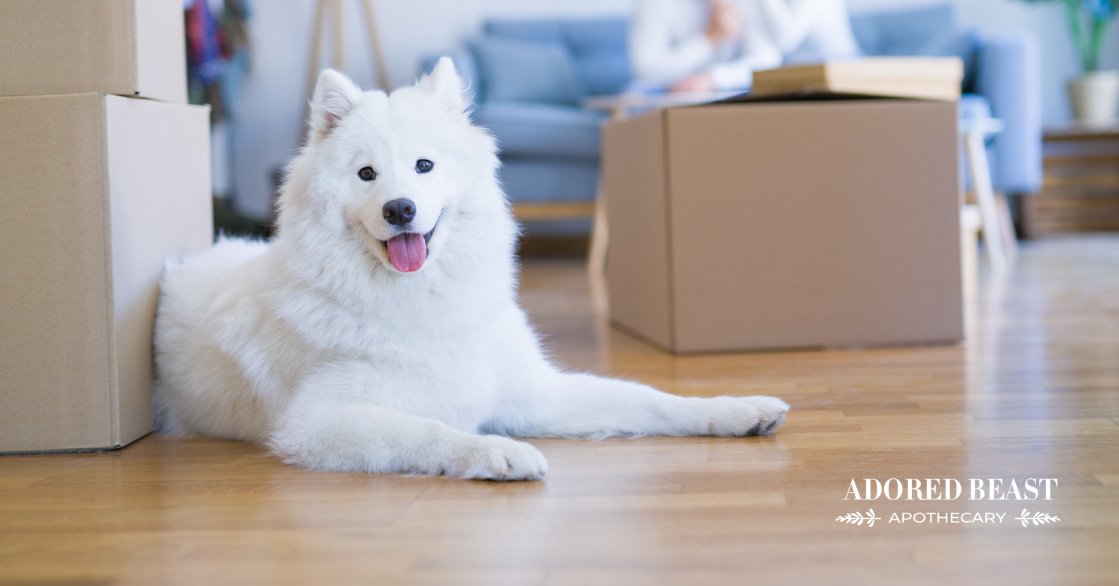
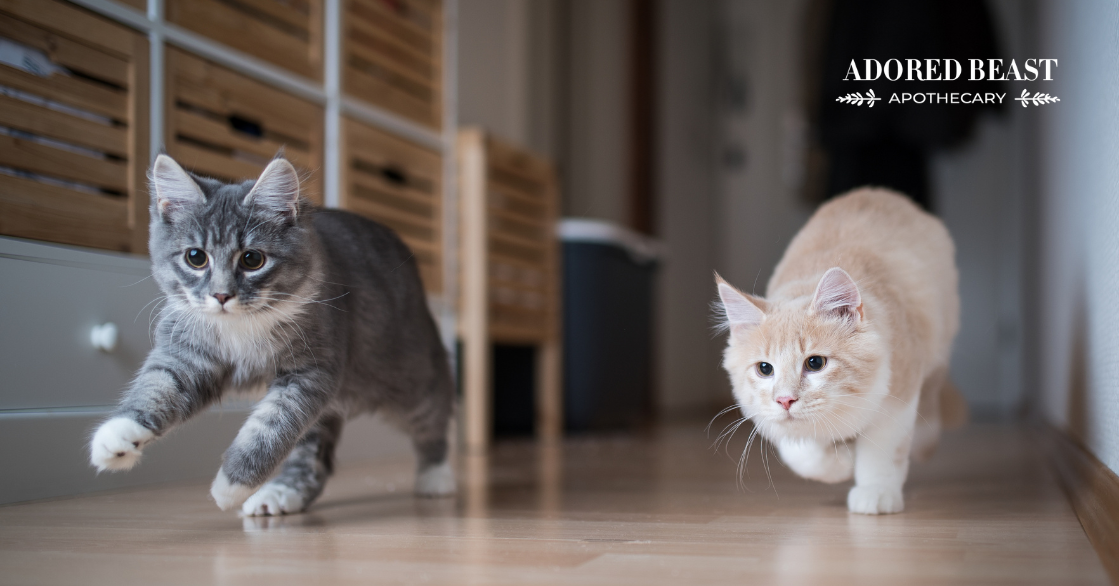
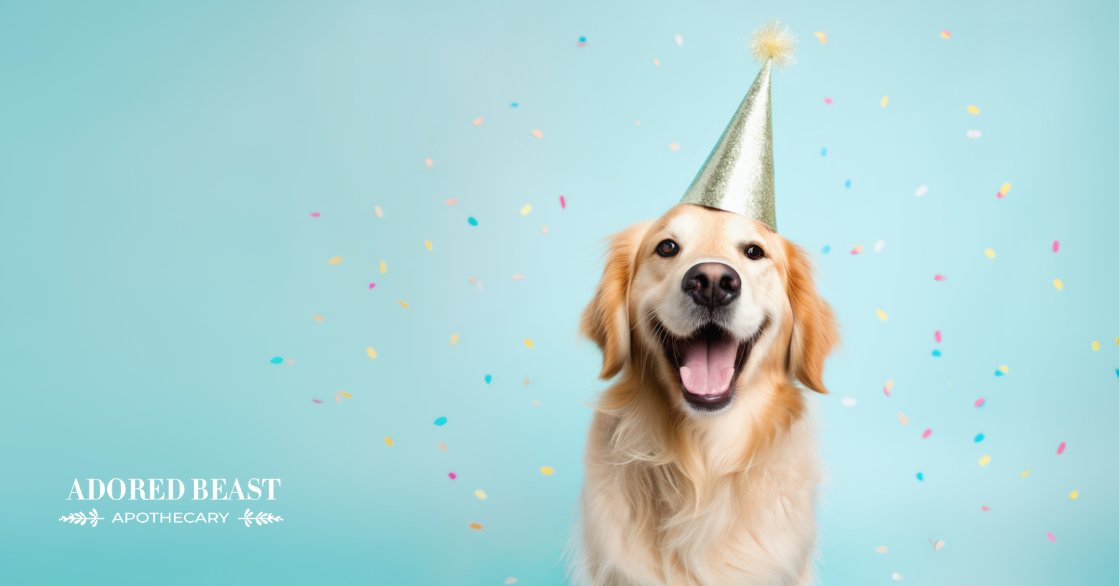





![[RESEARCH] Is Herbicide Safe for Dogs?](https://blog.adoredbeast.com/wp-content/uploads/2025/06/herbicides-safe-for-dogs-103x55.png)